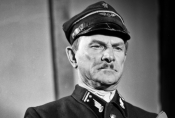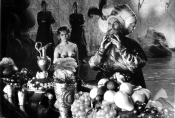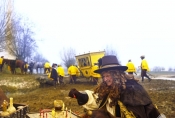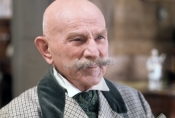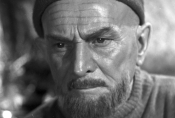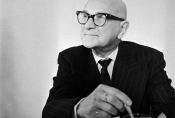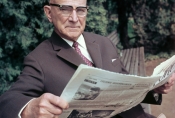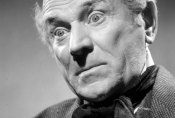Kazimierz Opaliński
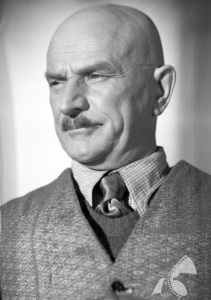
He never had any formal training, but thanks to his talent and hard work he was considered one of the best Polish actors. He worked with the greatest icons of theatre – Leon Schiller, Karol Frycz, Erwin Axer, Kazimierz Dejmek, as well as cinema – Andrzej Wajda, Andrzej Munk, Wojciech Jerzy Has, Jerzy Kawalerowicz, Stanisław, Różewicz, Jerzy Antczak.
He was born on February 22, 1890 in Przemyśl, died on June 6, 1979 in Warsaw. Before he became a professional actor, he worked as a printer. He made his stage debut in 1912. He worked in theatres in many cities, including Przemyśl, Lvov, Sosnowiec, Katowice, Grudziądz, Torun, Grodno, Łódź, Warsaw, Krakow. After the war, he worked at the Juliusz Słowacki Theatre in Krakow (1945¬1950), Powszechny Theatre in Łódź (1951-1952), the Współczesny Theatre (1957-1963), and the Narodowy Theatre (1953-957, 1963-1976) in Warsaw. He appeared in plays adapted for television (he won several awards for his performance in Chłopcy [Boys] by Stanisław Grochowiak, directed by Ryszard Ber in 1967) and radio dramas (including the popular radio soap opera Matysiakowie [The Matysiaks]).
His film career began in 1936 with small roles in Trędowata/The Leper by Juliusz Gardan and Barbara Radziwiłłówna by Józef Lejtes. Two years later, he was cast in the paradocumentary Ludzie Wisły/People of the Vistula (1938) by Aleksander Ford and Jerzy Zarzycki – he played the supporting role of the skipper. His first major role came after the war, in the landmark work of Polish socialist realism titled Dwie brygady/Two Brigades (1950), directed collectively by students of the Łódź Film School under the supervision of Eugeniusz Cękalski, based on the play by the Czech playwright Vasek Kania. Incidentally, Dwie brygady/Two Brigades was voted as the best experimental film at the Karlovy Vary festival (1950).
The role of a lifetime came six years later, when he was cast as train driver Władysław Orzechowski in Człowiek na torze/Man on the Track (1956) by Andrzej Munk; a complex man, excellent employee, who, however, is having trouble adjusting to the new, socialist reality at work. He also appeared in the other films by this director: Scherzo alla Polacca, the first part of the Eroica (1957), set during the Warsaw Uprising, in which he portrays the commander of Mokotów, and Zezowate szczęście/Bad Luck (1960), in which he played the warden.
With the exception of Czarne skrzydła/Black Wings (1962) by Ewa and Czesław Petelski, a successful film adaptation of the novel by Kaden-Bandrowski set in Silesia in the 1920s, in which he played a major role – director of the mine, as well as several leading roles in some less interesting films, he was usually cast in supporting roles. Nevertheless, he still managed to create many memorable characters, such as the hermit sheikh in Rękopis znaleziony w Saragossie/The Manuscript Found Saragossa (a.k.a. The Saragossa Manuscript, 1964) by Wojciech Jerzy Has, the Chaldean prophet in Faraon/The Pharaoh (1965) by Jerzy Kawalerowicz, the father in Wesele/The Wedding (1972) and Max’s father in Ziemia obiecana/The Promised Land (1974) by Andrzej Wajda, or Barbara’s uncle in Noce i dnie/Nights and Days (1975) by Jerzy Antczak.
Selected filmography
-
1956
MAN ON THE TRACKS
reż. Andrzej Munk
-
1972
THE WEDDING
reż. Andrzej Wajda
-
1974
THE PROMISED LAND
reż. Andrzej Wajda
